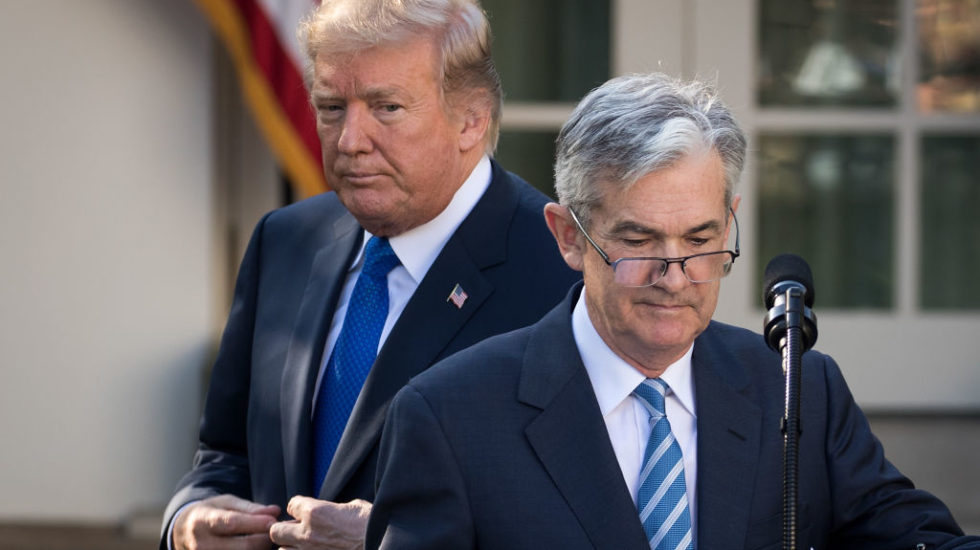President Trump fired a new broadside at one of his favorite targets Tuesday: the Federal Reserve and its Trump-appointed chairman, Jerome Powell.
“The Federal Reserve loves watching our manufacturers struggle with their exports to the benefit of other parts of the world,” he tweeted. “Our Fed has been calling it wrong for too long!”
As Trump has pressed his tit-for-tat trade war with China, boosting tariffs only to see Beijing retaliate with ever-larger tariffs on U.S. imports, American manufacturers have reduced their output for two straight quarters.
“The decline could complicate Trump’s reelection bid,” reports The Hill. “Manufacturing plays an outsize roll in key states such as Pennsylvania, Wisconsin and Michigan, which helped hand Trump the White House when they flipped in the 2016 election.”
With the U.S. economy threatened by ever-more-likely recession, Trump has chosen to blame not his trade policies, but the Fed.
“He has speculated about removing his hand-picked Federal Reserve chairman, Jerome Powell — a move critics say would violate the central bank’s independence, long considered a key tenet of a functional financial system,” says The Hill.
Trump has even called Powell an “enemy,” comparing him — unfavorably — with China’s President Xi.
“The global growth outlook has been deteriorating since the middle of last year,” Powell said recently. “Trade policy uncertainty seems to be playing a role in the global slowdown and in weak manufacturing and capital spending in the United States.”
The Hill says a recent survey of economists “found that roughly a third expect the economy to tip into recession in the coming year.”
